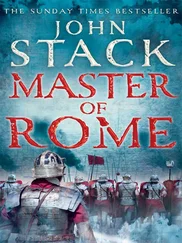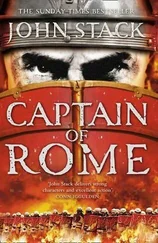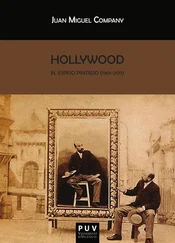‘The trim of the ship has been severely altered,’ he continued. ‘With the weight of the corvus on the foredeck the Aquila is heavy in the bow. It makes little difference in calm waters, but I fear in a storm the galley would be unmanageable.’
Atticus nodded. He admitted to himself that neither he nor Lentulus had considered the impact the heavy ramp would have on the finely balanced galley.
‘Unmanageable to what degree?’ he asked, knowing that Gaius would not have raised the issue if the problem wasn’t significant.
‘To the point of being unseaworthy.’
Atticus nodded once again, this time in silence. He would discuss the issue with Lentulus, although he had no doubt that Gaius’s prediction was accurate. Ultimately they would have to inform Duilius.
Atticus turned again to the bow and the unfamiliar sight of the corvus on the once-empty foredeck. He could not suppress the sense of hope he felt at the sight, even though his mind called for caution. The Carthaginians were far from beaten, but at last Atticus could picture their defeat in his mind’s eye. This new device, this corvus , had made that possible. The legions of Rome were unequalled in their fighting prowess. With the corvus , Rome could carry that killer ability onto the sea itself.
‘Ninety-six!’
Marcus repeated the number in his head as the centurion of the IX maniple, the centurion of the watch, prepared to strike again, his expression grim, his bloody work almost done.
‘Ninety-seven!’
The sound of the whiplash filled the very air, its strike no longer accompanied by the cries of pain that had struck at the heart of every legionary of the Ninth.
‘Ninety-eight!’
The legionary of the VII maniple hung like a butchered carcass across the interlocked pila spears, the flesh of his back in tatters, his legs soaked with his own blood.
‘Ninety-nine!’
Marcus darted his eyes left to Megellus, the legate standing alone in front of the I maniple, his armour hanging loosely from his shadowed frame, his gaunt face set in a mask of determination.
‘One hundred and all done!’
The centurion of the IX stepped back from the stricken soldier, his own torso and face spattered by the blood of the man he had beaten. The whip hung loosely by his side, its flayed tip dripping flesh and blood into the hard-packed sand of the parade ground. Megellus nodded a dismissal to the centurion before stepping forward.
‘Soldiers of the Ninth!’ he shouted, his voice carrying easily over the nine thousand men who could still do duty. ‘We are soldiers of the Republic, legionaries of the Ninth, the Wolves of Rome. The Ninth will not tolerate insubordination. Rome will not tolerate dereliction of duty!’
Megellus let his words hang in the air for a minute before he gestured to two orderlies to cut the legionary down. They ran forward and quickly cut the bonds that splayed the soldier across the X profile of the two spears, lowering him gently onto a stretcher. One of the orderlies ran his hands deftly over the still body, searching for a sign of life. There was none. He looked at Megellus and shook his head before they lifted the lifeless soldier and removed him from the parade ground. The entire legion followed their progress, ignoring the standing order of eyes front.
Megellus cursed inwardly. One hundred lashes was a brutal punishment, a heavy coin that was warranted for the crime of insubordination, but it was rarely a death sentence and was never envisioned as such. Given the soldier’s malnutrition, his chances of survival had always been slim, but regulations were clear and the punishment could not be changed. The legate’s gaze ranged over the massed troops before him, sensing their hostile mood, a mood that had turned inward over the previous week to focus on the commanders of the legion, the men they believed were condemning them daily as their comrades fell from typhus, malnutrition and exhaustion.
‘Troops dismissed!’ Megellus shouted, his order echoed by the centurion of each maniple. Where before the men would snap to attention before dismissal, the majority simply shuffled off the parade ground, many glancing back over their shoulders with hooded eyes at the legate.
‘Prefect,’ Megellus commanded, ‘assemble the senior centurions in my tent.’
The legate heard the slap of a fist on armour as he strode into his quarters, the camp prefect recalling the manipular commanders.
Five minutes later Megellus’s tent was filled with the senior officers of the legion, each one a veteran of more than twenty years, each one acutely aware of the precariousness of their situation.
‘Ten days,’ Megellus said simply, his face unable to hide the bitter disappointment of this final decision, ‘ten days and our final supplies will be exhausted. Ten days and we march, first to Segeste and the Second and then south to Agrigentum.’
Many of the centurions nodded; others, Marcus among them, simply held the legate’s gaze.
Ten days, Marcus thought, ten days during which the Ninth could still hold its head high amongst the legions of Rome. After that it would be stained with the mark of utter defeat, and Marcus felt the bitter bile of shame rise in his throat at the thought. For an instant his mind pictured a scene played out between three men nearly three months before at Brolium. He recalled the words vividly, the deal struck between them, the strength of their bond forged over a vow of honour. The memory straightened Marcus’s back and he stood tall amongst his commander and comrades. Whatever happened, he would stand tall for ten more days.
CHAPTER FIFTEEN
The light breeze accompanying the rising sun caused the war banners to billow out from the mastheads, the first rays of sunlight stroking their linen cloth. The dawn was heralded by the low baritone call of a sounding horn, its resonance signalling to the fleet to make ready to sail. Gisco gave thanks to Shahar, the god of dawn, for the westerly wind, its sudden arrival a further fortuitous omen for the battle ahead.
As the light strengthened the admiral could see the surrounding ships of the Carthaginian fleet nestled in the harbour of Lipara. Never before had he seen such a confluence of galleys. He held out his right hand and surveyed the calloused skin of his palm. He had heard that the Greeks could see the pattern of a man’s life and fortunes in the lines on his palm. Gisco wondered what mark represented his control of the most powerful fleet Carthage had ever assembled. He bunched his fist at the thought, feeling the strength of his grip. He smiled at the prospect of using the fist and the power of the fleet within its lines to hammer his enemies.
Six hours before, in the dead of night, a sentinel galley had returned from the north with news that the Roman fleet was beating southwards towards the northern coast of Sicily, a fleet of war galleys followed behind by transport barges. Their course was set for Brolium and the blockade around it, a formation of galleys that Gisco had already withdrawn into the main fleet two days before to swell his command to one hundred and sixty-one galleys. The fastest route for the Romans would take them between the Aeolian Islands and the Cape of Mylae on the north coast of Sicily, a channel only five miles across. It was there that Gisco would meet the enemy, leaving the Romans no route to circumvent his line of battle.
As the outermost galleys of the fleet raised their sails and began to manoeuvre out of the harbour, Gisco re-examined his battle plan. He could find no flaw in his strategy. His fleet surpassed the Romans’ in experience, seamanship, and numbers. If the Romans decided to attack his line head on they would be slaughtered. If they tried to turn and run in the narrow channel they would be slaughtered. There would be no escape and no quarter given. As the Melqart got under way beneath him he hammered his fist onto the side rail, feeling his blow connect with the power of his ship. Within minutes the quinquereme’s superior speed took her to the vanguard of the fleet, giving Gisco an uninterrupted view of the horizon. His pulse began to rise as he anticipated the sight of the Roman fleet breaching the solid line of the sea ahead. Remembering the complete victory he had accomplished in the harbour of Lipara, he almost regretted the ease with which he knew he would crush the Roman fleet.
Читать дальше
Конец ознакомительного отрывка
Купить книгу











